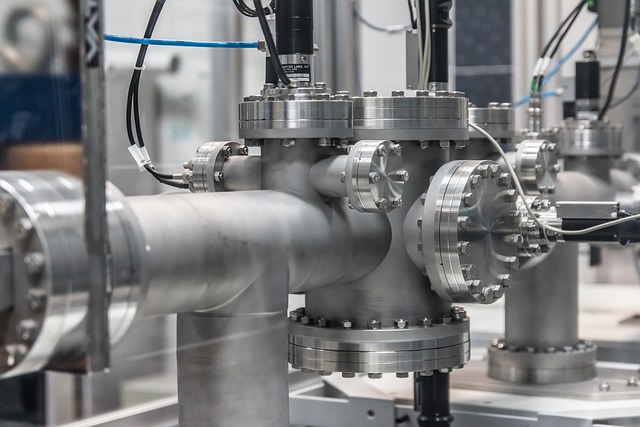Regular monitoring of home plumbing systems by a professional plumber is crucial for maintaining optimal water pressure (PSI) and flow. This ensures that fixtures function correctly, prevents leaks or burst pipes, and conserves water. Plumbers use specialized equipment to accurately measure and adjust water pressure and employ flow meters to assess the volume of water delivered over time. Early detection of minor issues through routine checks can prevent significant repairs and save homeowners money. Plumbers are essential for conducting water pressure tests, aligning with local standards, and ensuring a consistent water flow that supports daily activities while adhering to efficiency and functional needs across various appliances and systems. Their expertise in maintaining and improving water system performance is vital for any property, safeguarding structures and inhabitants from potential risks associated with improper water pressure.
Ensuring a reliable water pressure and flow system in your home is paramount for everyday tasks, from washing dishes to taking showers. This article delves into the intricacies of water pressure and flow, providing valuable insights for homeowners and plumbing professionals alike. We’ll explore the significance of proper water pressure, the role of a plumber in maintaining this balance, and various methods—both DIY and professional—to test and assess your system’s performance. From understanding the tools and equipment necessary to identifying the ideal water pressure for household use, this comprehensive guide will help you navigate common issues and ensure optimal water flow. Additionally, we’ll discuss the importance of regular maintenance, when to seek expert assistance, and how to interpret test results. Whether you’re facing low water pressure or simply looking to maintain your system, this article is a one-stop resource for all your water pressure concerns.
- Understanding Water Pressure and Flow in Your Home
- The Role of a Plumber in Testing Water Pressure and Flow
Understanding Water Pressure and Flow in Your Home

When it comes to the functionality of your home’s plumbing system, water pressure and flow are critical components that directly affect everyday tasks such as showering, washing dishes, or watering gardens. Water pressure refers to the force with which water moves through pipes; it is typically measured in pounds per square inch (PSI) and should be at an optimal level to ensure efficient use and to prevent leaks or bursts. A licensed plumber can assess your home’s water pressure using specialized tools like pressure gauges, ensuring that it falls within the recommended range for your area. This is essential for maintaining the health of your plumbing system and avoiding potential water damage.
Flow, on the other hand, pertains to the volume of water that travels through the pipes in a given timeframe. Adequate flow ensures that fixtures like faucets and showerheads deliver water at a sufficient rate for all your needs without wasted water or weak performance. Plumbers can conduct tests to measure flow rates, using flow meters to detect any irregularities. If issues are found, they can perform necessary repairs or adjustments to improve the water flow. Regular maintenance by a skilled plumber not only enhances the efficiency of your home’s plumbing system but also helps in spotting potential problems before they escalate into larger, costlier ones.
The Role of a Plumber in Testing Water Pressure and Flow

Plumbers play a pivotal role in ensuring that water pressure and flow within residential, commercial, and industrial systems are optimal for functionality and safety. During water pressure tests, plumbers utilize specialized tools such as pressure gauges to measure the force of incoming water against potential leaks or weak points in the system. This process is crucial for maintaining water efficiency and preventing costly repairs or water waste. A plumber carefully monitors the reading on the gauge to confirm that the water pressure meets local standards and regulations, which protect both the structure and its occupants from potential harm due to low or high pressure.
In addition to testing pressure, plumbers assess the flow of water throughout the system. This involves checking for consistent water flow at various fixtures and outlets to ensure that each component receives an appropriate volume of water. Adequate flow is not only about water availability but also about the delivery speed that supports efficient use. Plumbers may need to adjust valves, clear clogs, or repair pipes to enhance water flow, thereby ensuring that all water-dependent appliances and systems function correctly. Their expertise in this area ensures that buildings are equipped with a reliable water supply system, which is essential for everyday tasks such as washing, cooking, and sanitation.
In conclusion, maintaining optimal water pressure and flow within your home is essential for both comfort and safety. A professional plumber’s expertise is indispensable in diagnosing and rectifying any issues related to these systems. Regular testing by a skilled plumber not only ensures the efficiency of your water usage but also helps prevent potential leaks or bursts that can cause significant damage. By staying vigilant about water pressure and flow, homeowners can safeguard their property and enjoy a reliable water supply for all their needs.
